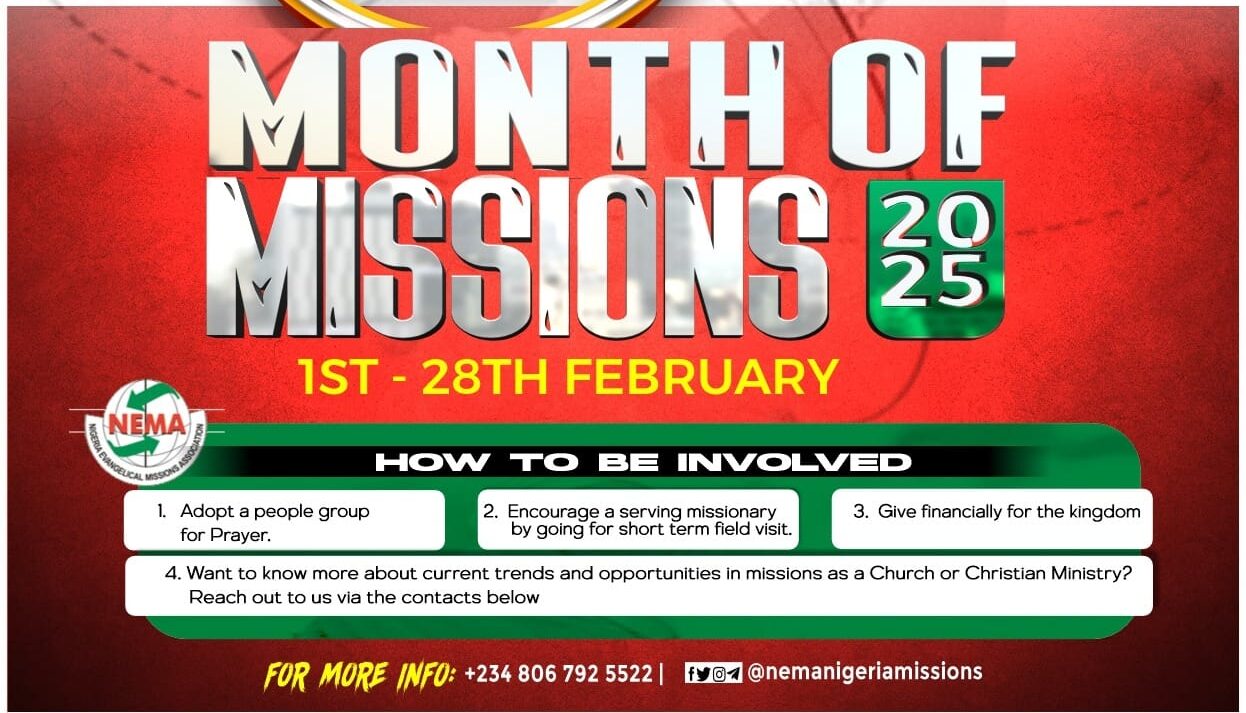Topic: More than Conquerors
Text: “No, in all these things we are more than conquerors through Him who loved us.” (Romans 8:37).
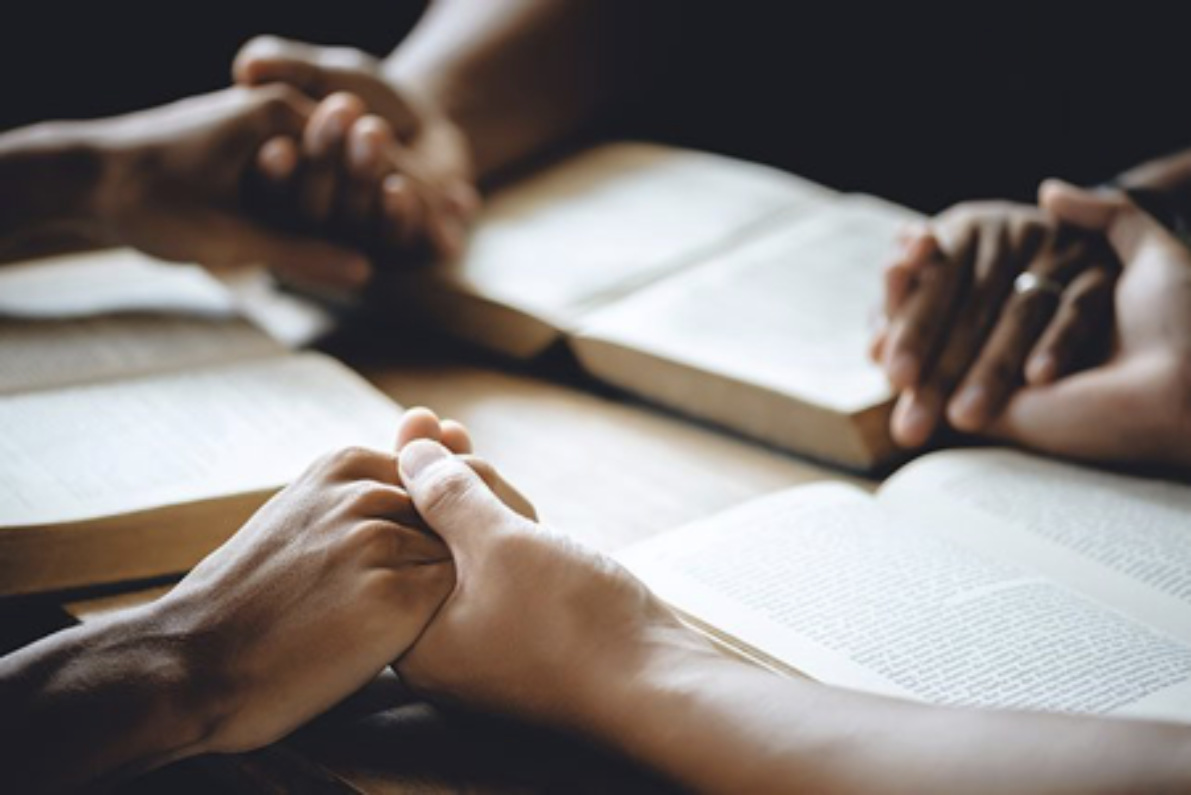 In the heart of every missionary, whether on the field or servicing in support roles, lies a profound calling to demonstrate Christ’s victory over sin, death, and all the forces of darkness. The journey, however, is not without its challenges. The labor is often arduous from hostile terrains and cultural barriers to financial constraints and spiritual oppositions. Yet, the Word of God assures us that we are not merely survivors or victors but ‘’more than conquerors’’ through Christ’s unfailing love.
In the heart of every missionary, whether on the field or servicing in support roles, lies a profound calling to demonstrate Christ’s victory over sin, death, and all the forces of darkness. The journey, however, is not without its challenges. The labor is often arduous from hostile terrains and cultural barriers to financial constraints and spiritual oppositions. Yet, the Word of God assures us that we are not merely survivors or victors but ‘’more than conquerors’’ through Christ’s unfailing love.
To be “more than conquerors” is to rise above the trials and turn them into testimonies of God’s grace and power. It means that even in persecution, lack, or rejection, we stand as living witnesses to the sufficiency of Christ. This assurance does not come from our strength but from the One who loved us and gave Himself for us. His victory on the cross secures our triumph in every endeavor, whether in preaching, teaching, giving, or interceding.
For field laborers, this truth brings encouragement amidst the reality of weariness and isolation. The challenges of adapting to new cultures, learning unfamiliar languages, and facing spiritual resistance can sometimes feel overwhelming. But remember, the One who calls also equips. In your weakness, His strength is made perfect. When you feel alone, He is the ever-present help. When the ground seems unyielding, He is the Lord of the harvest who makes all things fruitful in His time.
For the senders, the message is equally compelling. Your role in financing, praying, and encouraging missionaries is indispensable. Though you may not physically tread the mission fields, your obedience and sacrifice make you partners in the Gospel. Like the church in Philippi, who supported Paul in his mission, your generosity is a fragrant offering to God. Do not grow weary in doing good, for in due season, you will reap if you do not lose heart (Galatians 6:9).
But how do we walk in this reality of being more than conquerors?
1. Anchor in God’s Love: Paul’s declaration in Romans 8:37 rests on the foundation of God’s unshakable love. Nothing—not hardship, persecution, or danger—can separate us from this love. When we are secure in this truth, we face trials with confidence, knowing that victory is assured.
2. Abide in Prayer: Prayer is the lifeline of every missionary and sender. It keeps us connected to God’s will, empowers us for the task, and breaks down spiritual strongholds. Through prayer, we experience the partnership of heaven in our earthly assignments.
3. Focus on the Eternal Reward: The sacrifices made in missions are not in vain. Every seed sown, whether in the form of labor, finances, or intercession, contributes to the eternal kingdom of God. Keep your eyes on the crown that awaits—the reward of hearing, “Well done, good and faithful servant.”
4. Encourage One Another: The journey is easier when we lift each other up. As Paul wrote to the Thessalonians, “Encourage one another and build each other up” (1 Thessalonians 5:11). Whether through letters, visits, or simple acts of kindness, your encouragement can rekindle the fire in a weary soul.
Beloved, the call to missions is a call to conquer in Christ. Whether you are on the frontlines or supporting from behind, your labor in the Lord is not in vain. Stand firm, press on, and remember, through Him who loved us, we are more than conquerors.
Prayer
- Strength and Endurance for Missionaries:
Pray that the Lord will strengthen every missionary facing challenges on the field. Ask that the Lord will remind them that they are more than conquerors through Christ. In times of weariness, isolation, or opposition, pray that the love and power of the Lord will sustain them, turning every trial into a testimony of Your grace. - Provision and Encouragement for Senders and Supporters:
Ask the Lord to bless those who support missions through prayers, finances, and encouragement. Declare that they will not grow weary in doing good, and that they will see the fruit of their labour in the advancement of God’s kingdom. Pray that their faith be strengthened as they partner in the Gospel.
Dr Gloria Uchefuna
Executive Director, Global Missions Resource Centre
Church of God Missions International
Benin, Nigeria

 There is no time that being a true Christian is more difficult than the time we are presently. The evil one dishes out all kinds of adversities on a daily basis just to ensure that we are crippled, polluted, and ultimately defeated. Despite these difficulties, we are to remain steadfast, holding the fort for the gospel. Today’s devotional reminds us that we are more than conquerors through Christ Jesus and not through our efforts or strategies.
There is no time that being a true Christian is more difficult than the time we are presently. The evil one dishes out all kinds of adversities on a daily basis just to ensure that we are crippled, polluted, and ultimately defeated. Despite these difficulties, we are to remain steadfast, holding the fort for the gospel. Today’s devotional reminds us that we are more than conquerors through Christ Jesus and not through our efforts or strategies. The call to avoid jealousy and covetousness is not just a moral directive:
The call to avoid jealousy and covetousness is not just a moral directive: As laborers in the field, we may sometimes feel justified in taking a break—thinking we’ve done enough and it’s time to focus on other areas of our lives. After all, we’re only human, and surely God would understand. However, Apostle Paul, in our opening text, sets forth a higher standard. With unwavering conviction, he declares, “I have fully preached.” Similarly, in 2 Timothy 4:7 (NKJV), he reflects, “I have fought the good fight, I have finished the race, I have kept the faith.”
As laborers in the field, we may sometimes feel justified in taking a break—thinking we’ve done enough and it’s time to focus on other areas of our lives. After all, we’re only human, and surely God would understand. However, Apostle Paul, in our opening text, sets forth a higher standard. With unwavering conviction, he declares, “I have fully preached.” Similarly, in 2 Timothy 4:7 (NKJV), he reflects, “I have fought the good fight, I have finished the race, I have kept the faith.”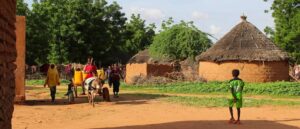 We visited Missionary M and his family serving in one of the troubled zones where insurgents continually carry out unprovoked attacks. They have had to escape from their abode on several occasions but soon return to continue to witness the Savior. We were very worried and concerned about their safety. We even tried to counsel them to consider leaving the place. But the response of Mrs. M remains thought-provoking. She said, “When we made up our mind to serve the Lord as missionaries, it’s with utmost commitment. No matter what comes, we will be at our duty post. He is aware that we are here and so there is no need to bother about us.”
We visited Missionary M and his family serving in one of the troubled zones where insurgents continually carry out unprovoked attacks. They have had to escape from their abode on several occasions but soon return to continue to witness the Savior. We were very worried and concerned about their safety. We even tried to counsel them to consider leaving the place. But the response of Mrs. M remains thought-provoking. She said, “When we made up our mind to serve the Lord as missionaries, it’s with utmost commitment. No matter what comes, we will be at our duty post. He is aware that we are here and so there is no need to bother about us.”
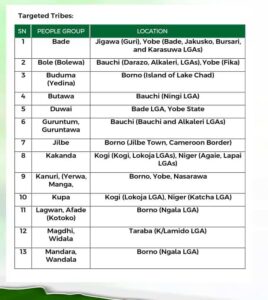

 As followers of Christ, we are called to fulfill the Great Commission, sharing the Gospel with a lost and dying world. However, this mission is often fraught with adversity, challenges, and obstacles. In Nigeria for instance, there is insecurity occasioned by the activities of Boko Haram, Bandits, Fulani Militias, Lakurawas, and Kidnappers. These are forces and more that we are grappling with in our bid to propagate and spread the gospel. In the face of such adversity or challenges, we must remember that we are more than conquerors through Christ Jesus.
As followers of Christ, we are called to fulfill the Great Commission, sharing the Gospel with a lost and dying world. However, this mission is often fraught with adversity, challenges, and obstacles. In Nigeria for instance, there is insecurity occasioned by the activities of Boko Haram, Bandits, Fulani Militias, Lakurawas, and Kidnappers. These are forces and more that we are grappling with in our bid to propagate and spread the gospel. In the face of such adversity or challenges, we must remember that we are more than conquerors through Christ Jesus.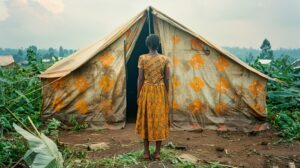 Our text today refers to the divine visitation that Daniel had at a time when he decided to seek the Lord’s face. Jerusalem had been in ruins and had been desolate for close to seventy years. Jerusalem was in a sorry state with little or nothing to write home about it. However, just when the spirit of the people was at its lowest ebb, God sent His angel Gabriel with this reassurance: Jerusalem would be rebuilt again! After seventy years of ruins and desolation, hope was being rekindled. It is important to note the words of Angel Gabriel, “Then for sixty-two weeks it shall be built again with squares and moat, but in a troubled time” (Dan. 9:25b).
Our text today refers to the divine visitation that Daniel had at a time when he decided to seek the Lord’s face. Jerusalem had been in ruins and had been desolate for close to seventy years. Jerusalem was in a sorry state with little or nothing to write home about it. However, just when the spirit of the people was at its lowest ebb, God sent His angel Gabriel with this reassurance: Jerusalem would be rebuilt again! After seventy years of ruins and desolation, hope was being rekindled. It is important to note the words of Angel Gabriel, “Then for sixty-two weeks it shall be built again with squares and moat, but in a troubled time” (Dan. 9:25b).